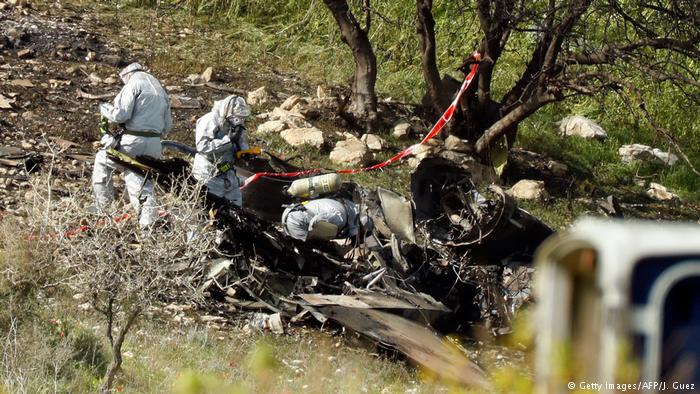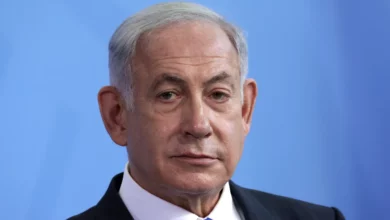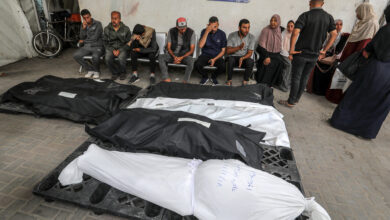
Prime Minister Benjamin Netanyahu said Sunday that Israel would continue its military strikes in Syria despite the downing of one of its most advanced fighter jets a day earlier.
Syrian anti-aircraft fire downed an Israeli F-16 — the first such downing of an Israeli fighter jet in 36 years — as it returned to Israel from a bombing raid on Iranian-backed positions inside Syria. The raids came after Israel shot down an Iranian drone it said violated Israeli airspace through Syria. Tehran denies the charge.
Iran has been backing forces loyal to Syrian President Bashar al-Assad throughout the seven-year war in Syria.
Netanyahu defended Israel’s military action in strident terms during his cabinet meeting on Sunday.
“Yesterday, we landed hard blows on the forces of Iran and Syria,” he said. “We made unequivocally clear to everyone that our modus operandi has not changed one bit.”
Israel, however, also indicated it does not want to deepen the conflict that has claimed some 400,000 lives. But the government is concerned about the presence of Iranian-backed forces near the Golan Heights, which is occupied by Israel.
Israel remains technically at war with Syria. Its occupation of a swathe of the Golan Heights, which it seized during the Six-Day War of 1967 and later annexed, has never been recognized by the international community.
Fears of escalation
Israel said it destroyed three Syrian anti-aircraft batteries and four targets “that are part of Iran’s military establishment” in Syria during Saturday’s raids.
“This is the broadest attack on Syria’s defense systems since [Operation] Peace for the Galilee,” Brigadier-General Amnon Ein Dar told Army Radio, referring to Israel’s 1982 Lebanon offensive, in which it battled Syrian forces.
In a telephone conversation with Russian President Vladimir Putin on Saturday, Netanyahu affirmed Israel’s right to defend itself but vowed to continue cooperating with the Kremlin to avoid accidental clashes with Russian troops in Syria.
The Syrian Observatory for Human Rights, a British-based war monitor, said at least six people were killed by Israel’s initial strikes on Saturday. The Syrian government has yet to offer a death-toll.
Netanyahu’s government has also accused Iran of planning to build precision-guided missile factories in Lebanon.
Both Washington, Israel’s strongest ally, and Moscow, which has backed Assad throughout the Syrian war, have voiced concern over the weekend clashes.
US Secretary of State Rex Tillerson starts a five-day trip to the region on Sunday, beginning in Egypt. His travels, which a State Department official said would involve “tough conversations,” will also take him to Turkey, Lebanon, Jordan and Kuwait.
The Eurasia Group, a New York-based political risk consulting firm, said, “In order to reinforce deterrence, Israeli leaders will probably assess they need to show Iran, Hezbollah and Syria they will continue to strike targets despite the risk.”
“[But] in a fog of war environment, another incident can easily drag the relevant parties toward a regional conflict,” it added.




